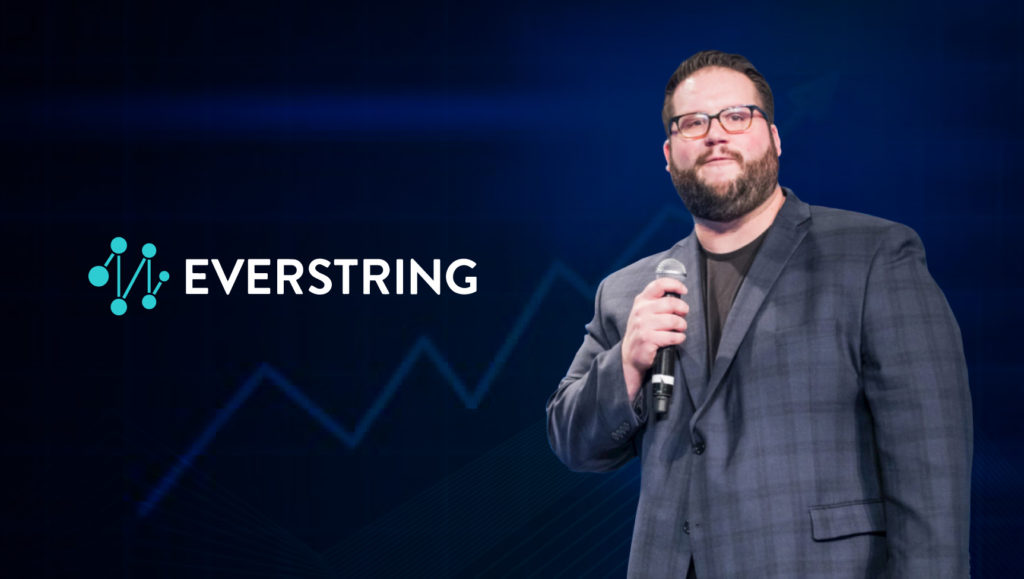Tell us a little about your background and how you got into the Sales Technology industry.
I got my first exposure to sales during the earliest part of my career working at Red Bull. I was amazed at the exponential growth our sales leader, Gary Smith (now CEO of Big Red), was able to drive by creating a streamlined sales process. We were an early adopter of Salesforce and one of the first companies to move our CRM to the cloud. The speed and analytics that brought to our business completely blew me away, and from that day on, I was hooked.
Why is a strong CRM system integral to Sales?
Having a CRM is table stakes for any business that has a sales team but having a strong CRM with a solid foundation of good clean data is what truly makes a business grow. I’ve been lucky to work with some of the best sales operations professionals in my career. People like Linda Fitzek, Crissy and Charlie Saunders, Courtney Hays and the teams at both Bluewolf and GoNimbly have helped the organizations I’ve worked with take good sales processes and really make it great.
How has Sales Intelligence changed the Sales Industry?
There’s never been more data available to sales professionals but processing that data and turning it into actionable insights is not easy. Oftentimes Sales Intelligence applications are in disparate systems, requiring the user to log in to a web portal separate from CRM.
At EverString, we put that data directly where sales professionals work, in CRM. This gives them the insights they need directly on a lead, contact, account, opportunity or customer record. By dramatically reducing the amount of time they have to spend outside of CRM doing research, building lists or modeling out what a good account looks like, Sales Intelligence companies like EverString have streamlined the selling process allowing SDRs and AEs to focus their time and effort on the accounts that matter the most.
How do you perceive the differences between MarTech and SalesTech? How do you design a Sales Intelligence Solution that bridges the gap between MarTech and SalesTech?
MarTech should allow businesses to market more effectively and efficiently on a one-to-many basis (macro), while SalesTech should drive the same results but on a one-to-one or one-to-few basis (micro). I find the best way to bridge the gap between Sales and Marketing is by sharing a single-data source that allows both teams to have a single vision of their total addressable market.
When everyone understands the right accounts and the right personas, companies ensure that their marketing team is driving pipeline that the sales team actually wants to sell to. As a marketer, I can’t tell you how many times I’ve heard a sales professional say, “That was a great lead, if you could just give me 10 more like that each month, I could achieve or overachieve my quota on a consistent basis.”
What is more important to you: Building a great product or a strong focus on client satisfaction?
Trick question, these two do not have to be mutually exclusive. Building a great product is often the fuel that drives customer satisfaction. Look at businesses like SalesLoft, Zendesk, Marketo or Anaplan. These companies have created products that their customers love and keep coming back to year over year. In a way, their customer satisfaction becomes automated because they have such great products, but what separates companies like these from most other businesses is that they still have a heavy focus on surprising and delighting their customers through great customer service and new innovations. We strive to replicate these businesses and often use them as examples of excellence.
How can the Sales Industry best leverage EverString’s products?
To cut through the clutter…
As I mentioned earlier, there are so many types of data and so many applications you can use to source different data types it’s enough to make a sales person’s head spin, and I personally believe most companies are forcing their sales teams to do way too much. A sales professional should be able to walk into work, log in to CRM and have an immediate understanding of what they’re going to do at any given day, whether that’s prospecting, selling or closing. We seek to make the prospecting and selling much easier by providing them with both the data and insights they need to be more effective in their job.
So real-world example, a salesperson at a company using EverString is able to quickly understand which of their accounts are the best fit for the product they sell and have exhibited the ‘intent’ to purchase that product.
They can click into that account and see all the relevant data they would need to sell to that company (a combination of firmographics, technographics), which of their current customers that company most closely resembles and have access to all the relevant contacts within the account. When you think about the alternative, that whole process would take the average sales professional hours to replicate.
Could you give us a use case of your product(s) when EverString helped a business resolve a complex problem?
I believe we have solved the problem of account identification for sales. A sales professional at a company using EverString should never struggle to figure out which account they should be prospecting into nor should they worry about populating the data they need to call, email or social sell to the right persons at that account. That’s a big issue facing nearly every B2B company. A more nuanced use case comes from one of our customers, Snowflake Computing.
They’re using our fit and intent data to determine territory expansion and new market development by identifying companies in these new territories and verticals that look similar to their current customers and are looking for a product like theirs. Prior to hiring new reps, their marketing team begins warming up these new markets so when a new rep starts, they aren’t prospecting or selling into cold accounts. The work they are doing there is pretty mind-blowing.
Could you name some tools that EverString’s Sales Intelligence Tools can integrate with?
So primarily we integrate with CRM since that’s where sales professionals spend most of their time. That includes Salesforce, Microsoft and SugarCRM. We also integrate with marketing technologies like Marketo, Eloqua, Terminus, and others. But we have some really cool integrations coming in 2019, so stay tuned.
How can Sales and Marketing teams leverage AI into their Sales Technology stack?
There are just far too many companies out there for sales teams not to have some sort of intelligence layer for prioritization and for insights. Sales teams need, for lack of a better term, an AI sidekick that can help them do research on businesses at scale, so they can focus on prospecting, selling and closing new deals. The work that we’re doing today at EverString is really just the tip of what is an enormous iceberg.
As a business leader, do you think AI is the future of Sales Technology?
100%. Of course, I’ve made my bet that EverString will become the premier vendor for AI for Sales, but if not us, someone will. As companies have put a much larger emphasis on rapid growth and quotas are getting higher and higher, sales professionals need assistance to sell more efficiently and effectively. To be clear though, I do not see a reality where the AE position becomes obsolete.
I do not think that you will have AI do the actual work of prospecting, selling and closing. A human will always need to be involved in the sales process. I often make the analogy that AI for sales will be more of an Iron Man suit than a Terminator, meaning it will enhance the sales professional, not replace them.
Could you name some apps/tools that you use in your day-to-day life?
I’ve been a Salesforce user for more than 15 years now, so that’s always going to be my go-to tech stack foundation. Over the last decade, LinkedIn’s Sales Navigator has been a staple and for the last four years, I can’t live without SalesLoft.
If you did not work in the Sales Technology industry, what would be your alternate career choice?
Professional football player! I had a great prep and college football career and would have loved to take it to the next level.
Which Sales leader from the industry would you like to see answer the questions above?
Ted Purcell (Marketo/Adobe) or Todd McCormick (Terminus).
Thank You, Matt, for answering all our questions. We hope to see you again, soon.

Fully automated and powered by AI-human integration, EverString’s modern data platform helps sales, marketing, and operations teams discover and operationalize B2B data to gain a competitive edge. EverString harnesses AI, applied data science and the most up-to-date and reliable data, allowing users to accurately assess customer fit, intent, recency, and engagement so marketing and sales can do what they do best — close deals. EverString is backed by leading investors, including Lightspeed Venture Partners, Sequoia Capital, IDG Ventures, and Lakestar.
With more than twelve years of sales and marketing experience, Matt Amundson has held various positions with organizations like Red Bull, Marketo, and Tibco. Matt was responsible for building out the initial Sales Development team at Marketo, helping lead the company to a billion dollar IPO. Later he joined Tibco to manage Sales Development, Inside Sales and Demand Generation functions in multiple divisions within Tibco including tibbr, Loyalty Lab, Tibco Engage and Spotfire leading to a 4.3 billion dollar acquisition. A frequent speaker, Matt has been a presenter at Dreamforce, Sirius Decisions, #FlipMyFunnel, LinkedIn and many more. A winner of Topo’s Sales Development Leader of the Year, Marketo’s 50 Fearless Marketing Leaders and the SLMA’s 40 Most Influential Sales and Marketing Professionals.





















